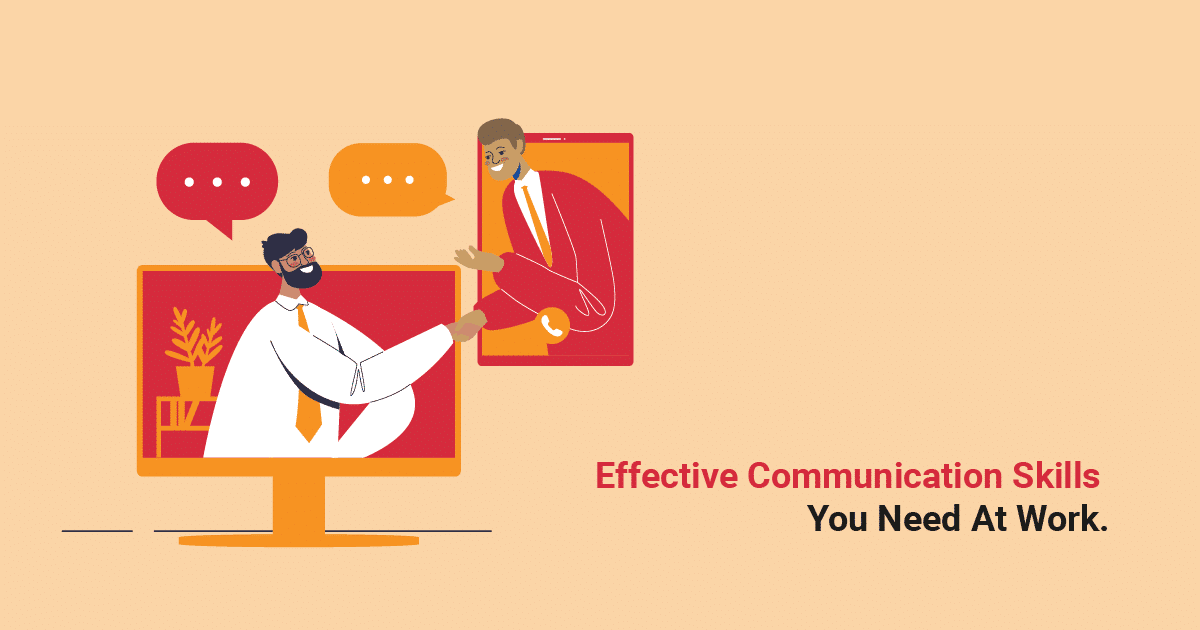Communication has the power to either break or make an organization. This, therefore, makes effective communication skills very important in any workplace. Successful communication does not just focus on the words one uses, but also the emotions, body language, facial expression and gestures they use as well as the purpose of the information communicated.
Effective communication does not only allow us to make relationships with other people but also helps us maintain those relationships. How you handle your relationships through communication is what essentially determines whether you will be successful in your workplace or not.
Now that you know the power effective communication has, what are the barriers of effective communication you need to beware of?
- Emotions; although it is important for you to express your emotions when communicating, you should be careful not to let your emotions overwhelm you or affect how you understand what someone else is saying. Choosing to calm down and become level-headed before saying anything or listening to someone helps you control your emotions better.
- Stress or Fatigue; when people are stressed or fatigued, they tend not to be attentive. Trying to communicate with them during that time is not advisable. Should you want to talk to someone or someone want to talk to you about something important, ensure you or the other party is not stressed.
- Lack of interest; when people are not interested in a certain subject, they will not pay much attention to whatever is said about it. Before you go ahead and communicate information, find out whether your audience is actually interested in it or not.
- Language; the use of jargons, a different language or extremely complicated English can hinder someone from understanding what is being communicated to them. It is important for you to know what language to use when trying to communicate to someone else.
- Body language; communication also entails the use of body language. Whenever someone’s body language seems to be different from what they are saying, chances are high that they are not being genuine. This also causes confusion to the other party communicating to them as they are not sure whether to believe what the person is saying or what they are expressing.
So what are the important communication skills you need to communicate effectively at your workplace?
Listening Attentively:
Communication is not just being able to convey your message clearly but also listening what some else has to say. While someone is talking to you, you have to listen actively and pay close attention to them. Listening actively means, clearing your mind from everything else you could be thinking of and focusing on what someone is saying.
Listening to what someone else has to say enables you to give them appropriate feedback and understand them better. Talking while someone else is talking is considered to be rude and disrespectful. Always wait for another person to finish talking and then talk. Should you not understand what they have said, asking questions to further understand them is advisable.
Be Empathetic:
Although you may have different values, opinion or thoughts from those around you, it is important to understand why those around you think or do things the way the do. Looking at things from other people’s perspective and not from your point of view enables you to understand them better when they communicate to you.
Be Enthusiastic:
People are more likely to open up and communicate with you if you are actually enthusiastic about what they have to say. Showing your interest by listening attentively makes one feel respected and trust you enough, to be honest with what they have to say.
Pay attention to body language:
When communicating with someone, be sure to pay attention to their body language and posture. These give you more information about whether they are interested in what you have to say and what they really mean.
Furthermore, adopting the body language and posture you use to that of the person you are communicating with enables them to feel a deeper connection with you and, therefore, share much more information with you.
Keep Eye Contact:
When you keep eye contact with the person you are communicating with, it shows them that you are interested in what they have to say, are confident and can be trusted. They will, therefore, in turn, be able to relate with you better and give you more genuine answers.
Ask Questions; Do not assume:
One of the reasons why people fail to communicate well with each other is because they do not actually understand what has been said. Many times people tend to make assumptions based on the little information they have or based on what they see. It is important to approach someone and ask for clarity or more information before reaching a certain conclusion.
Be Honest:
Honesty is very important when it comes to communication. Should you be dishonest in your communication, the truth is bound to come out and this will affect how everyone else will communicate with you. People do not want to and are less open when communicating with someone they think could be dishonest.
Be Patient:
Patience is very important in the communication process. You have to be very patient when speaking to another person. You have to be patient when another person is talking and wait for them to finish; you have to be patient enough to listen to the other person as well as patient to get the right information from someone before making a decision.
Patience further helps you avoid misunderstanding what someone else could have said.
Like any other set of skills, communication skills too need be practiced and improved on for them to be mastered. You can further develop your communication skills.
- Enroll in training programs or communication skills courses.
- Keep a record of how you communicate and how you can better improve.
- Practice the new communication skills you could have gained with other people.
Every relationship be at work or outside work begins with and is maintained by communication. Get this area right and there is no doubt you will succeed in most of your endeavors.





